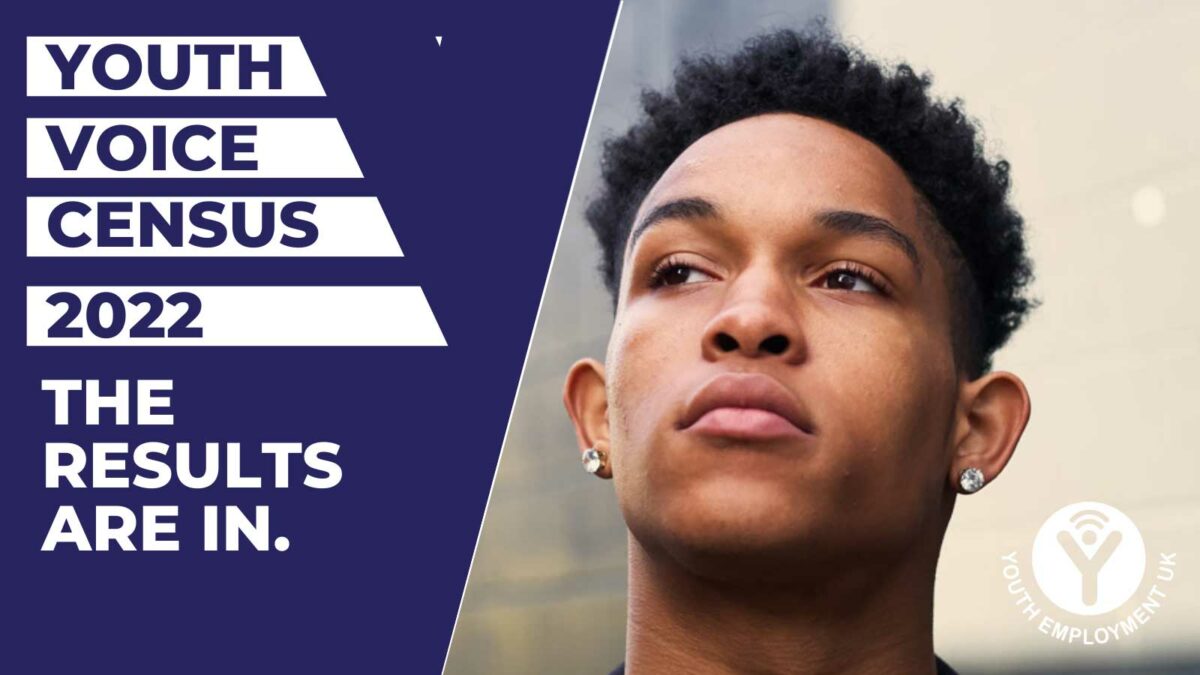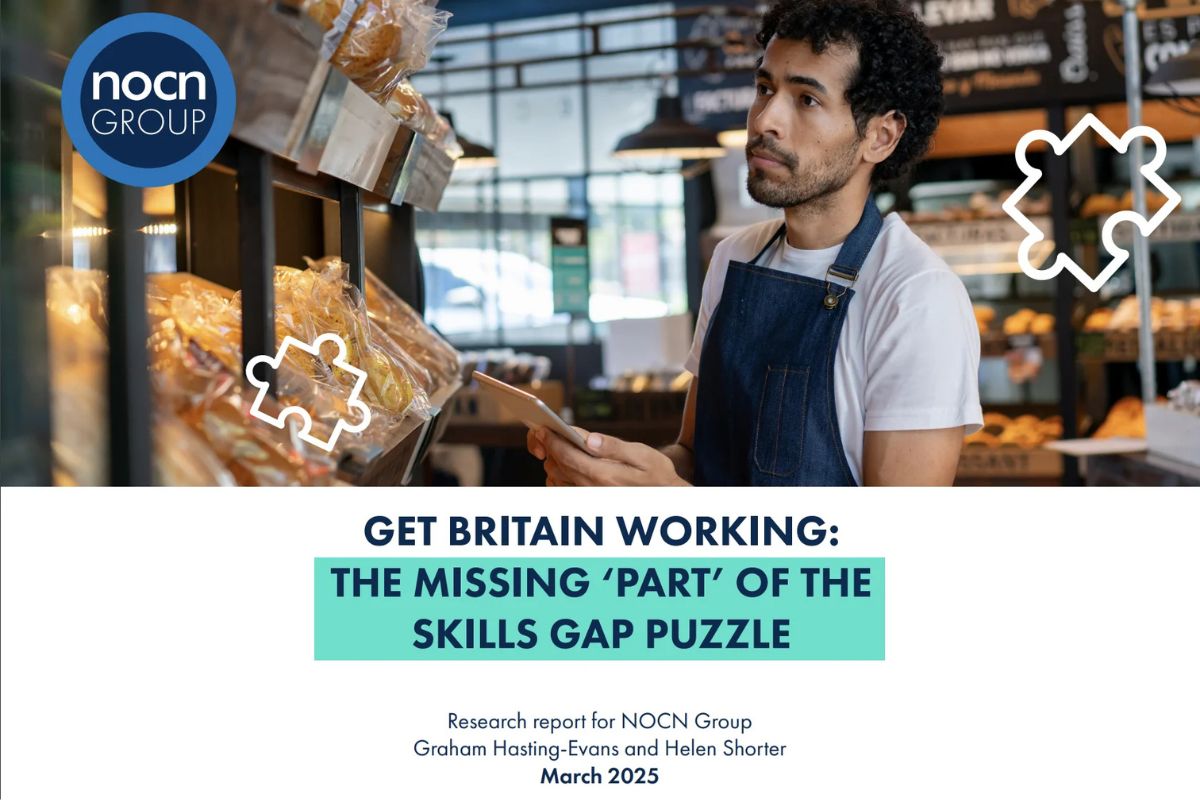A bleak landscape for young people: Youth Voice Census Report 2022

Key findings from Youth Employment UK’s annual Youth Voice Census launched on 6th September 2022 present a stark reality for young people today.
- Young people’s mental health is at an all time low with over half of all young people believing that anxiety or poor mental health is holding them back
- Those with protected characteristics felt the most disadvantaged; they were at least 10% less likely to feel safe where they lived, to think employers wanted to hire them or feel confident they had the tools to succeed
- Fewer young people than ever before feel prepared to access and apply for work
- Access to quality work is not improving; only 14.2% of young people think they can access quality work where they live.
The Youth Voice Census is an annual temperature check on how young people in the UK feel about life, study, work and general prospects. Over 4,000 young people aged 11-30 took part in 2022. The findings, revealed in a report launched on 6th September 2022, indicate that young people are struggling more than ever before in the face of seemingly insurmountable barriers.
Now in its sixth year the Youth Voice Census is produced annually by Youth Employment UK. it has been supported this year by Amazing Apprentice The Edge Foundation, Pearson and Skills Training UK
LJ Rawlings, CEO and founder of Youth Employment UK, says:
“The lead findings of this year’s Youth Voice Census focus on the mental health crisis, unfairness and the fact that young people are still unprepared for the world they find themselves in.
The numbers reveal the extent of the emergency. 51% of young people looking for work thought their anxiety was the biggest barrier to accessing work. 31.2% of young people in work struggle with their wellbeing. Nearly a third (28.5%) of young people said they are experiencing ‘social, emotional and mental health challenges’. The numbers are horrific, and behind each statistic is a young person needing support.
They say it takes a village to raise a child. This must also mean a village can fail a child. We are all the village, and it’s time to choose our roles.”
A mental health emergency
The past three years have been traumatic for young people. COVID-19 and its continuing aftermath has acted both as a catalyst and as a suppressant for some of the biggest issues facing young people: accelerating social, emotional and mental health challenges and contributing to the growing fears and feelings of isolation from age 11 all the way to age 30.
These findings show just how deeply entrenched anxiety and uncertainty is for young people of all ages. Loneliness and worry about being able to make friends and build relationships is leaving young people dejected and with worryingly low self belief, motivation and confidence.
Difference IS the disadvantage
For the most part, these findings are the result of the systems around young people struggling under pressure – or, in some cases, failing altogether. Most frustrating for young people, though, is that the things holding them back are things that are widely out of their control.
The very essence of who they are – their gender, sexual orientation, race and ethnicity, socio-economic group, carer and care leaver status – play a part in what they have available to them locally, their safety, their aspirations and their direct access to quality work. ‘Difference’ is a disadvantage hindering their progress and futures.
Unprepared for work
There’s a mismatch between the skills they believe employers want and the skills they believe they have. In addition, young people are less likely than previous years to believe they can write a CV, pass an interview or feel confident that they are prepared to start employment.
Young people want and need more career advice, work experience and skill development opportunities, starting young and continuing long past Key Stage 4. In addition, they want better information and the tools to manage finances, look after themselves outside of education, better career management support in work, and accessible support for their mental health and wellbeing.
Quality of work
One of the aims of Youth Employment UK’s Youth Voice Census was to explore what stops young people applying for opportunities. Low pay and being frequently met with entry level roles with person and qualification requirements that weren’t attainable for them are the biggest factors. There is still a very real sense that there ‘are no jobs for me here’, even as we see an ongoing participation crisis.
Accessing quality work locally is a problem repeated this year. Travel and location are becoming bigger problems for young people finding and keeping work. When young people are in good quality work they can be themselves, they believe they are building useful skills for the future and they are happy in their work environment. However, fair pay, access to training and support and opportunities for promotion are scoring lower than previous years.
These findings on their own are stark, but put against the backdrop of a cost of living crisis, and growing economic and political uncertainty, we must all do more… or see things get even worse in ways that will be even harder to rectify.













Responses